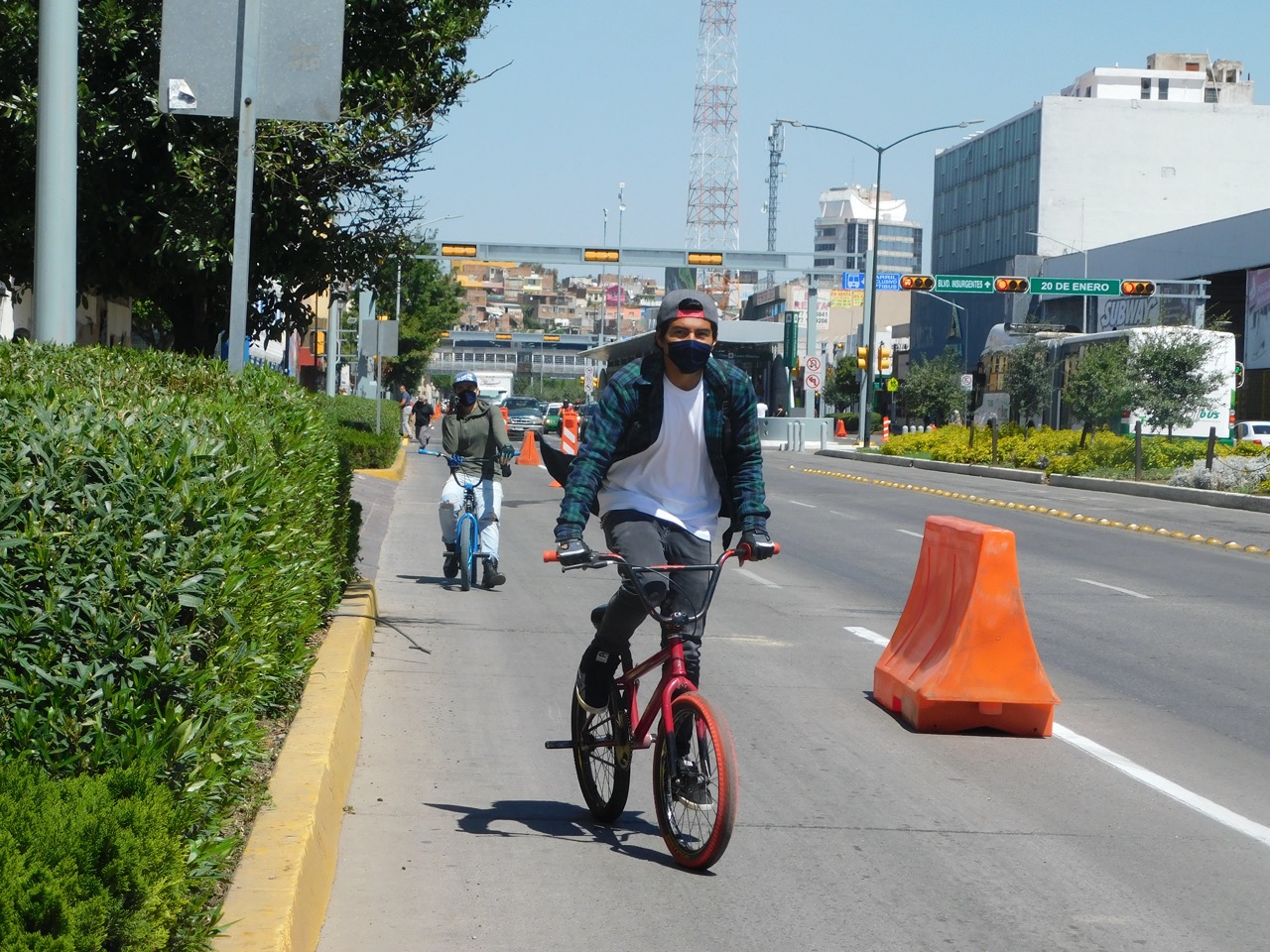In Mexico, to promote the implementation of emerging bike lanes, local governments have been supported technically to strengthen and promote emerging bike lanes projects as a joint effort between Climate Policy Meets Urban Development” (CPMUD) and Climate Protection in Mexican Urban Policy (CiClim). These are projects commissioned by Germany’s Federal Ministry for the Environment, Nature Conservation and Nuclear Safety (BMU) as part of the International Climate Protection Initiative (IKI).
The CiClim project is supporting Mexico to achieve the Sustainable Development Goals (SDGs) of the 2030 Agenda, within the framework of the 4S Mobility Plan (Healthy, Safe, Solidarity and Sustainability) of the Ministry of Agricultural, Territorial and Urban Development (SEDATU). The issue of emerging bike lanes is placed within SDG 11 – “Sustainable Cities and Communities”, which seeks to build cities that are more humane, liveable, green and capable of facing the challenges of climate change.

Emerging bike lanes have been key to the mobility of people and goods during the current context of the pandemic. Consequently, bicycles have become a mode of transport that adapts to the situation of the pandemic, reducing congestion from car use, reducing emissions, and improving air quality. In addition, it is an accessible transport model for a greater part of the population, an important factor in times of economic crisis derived from the pandemic. Likewise, the bicycle will contribute to the green recovery of cities.
Currently, the CiClim project, in conjunction with CPMUD, supports the Mexican government in the implementation of temporary bike lanes in three cities in the center and north of the country (León, Guanajuato; Torreón, Coahuila; and San Nicolás de la Garza, Nuevo León). The three cities were selected through a contest that was organized in conjunction with SEDATU and is expected to cover just over approximately 27 kilometers.
Finally, many of the bike lanes are expected to become permanent infrastructures in favor of a green recovery that promotes the sustainability of cities.

